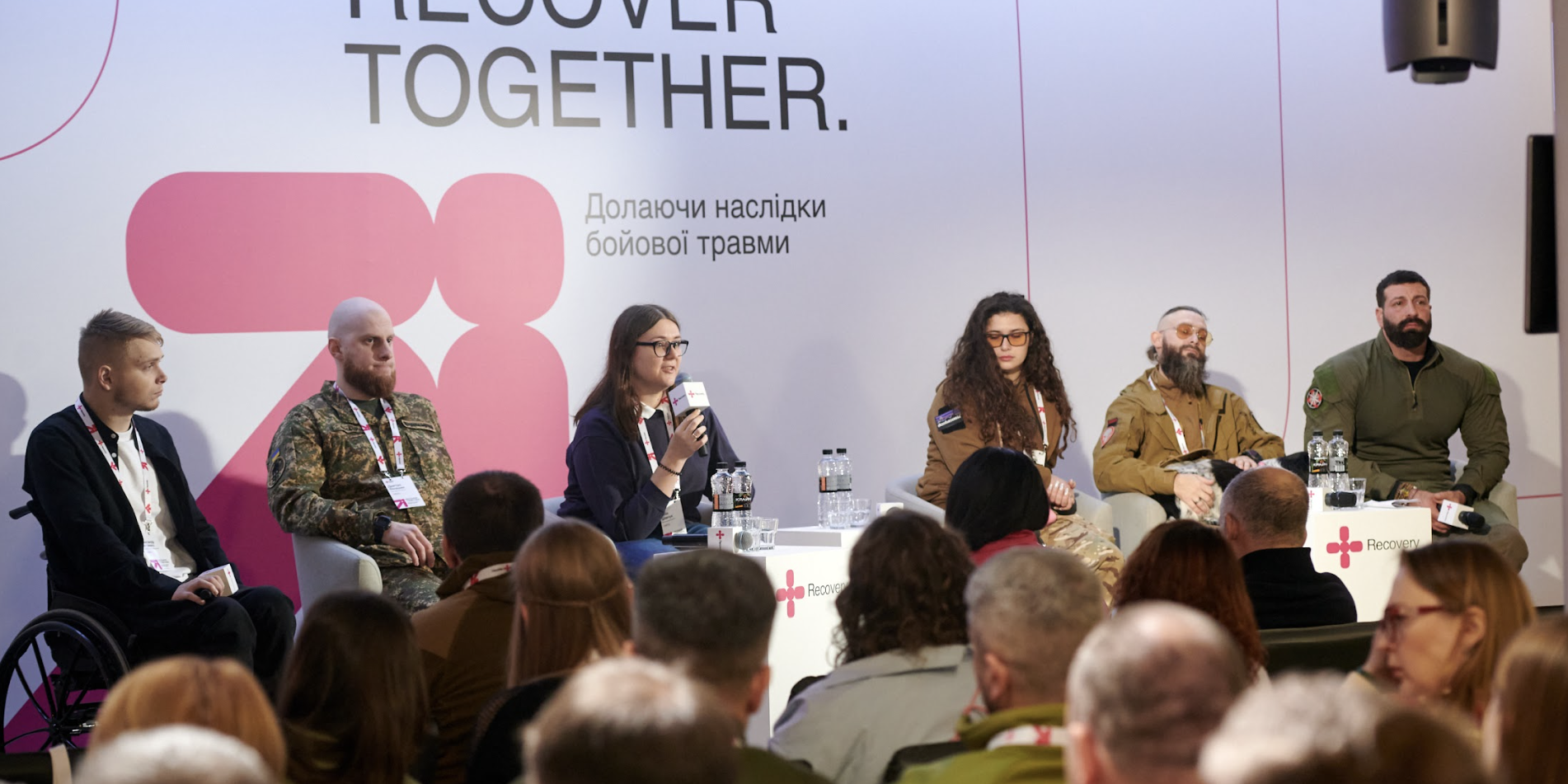The annual international conference RECOVER TOGETHER: Overcoming the Consequences of Combat Trauma took place in Kyiv, bringing together over 60 speakers from Ukraine and special guests from the United States, Canada, Germany, Singapore, Latvia, and Israel. The event featured presentations, workshops, and clinical case discussions.
Organized for the second time by the National RECOVERY Network of rehabilitation centers for wounded military personnel, founded by Victor and Olena Pinchuk, the conference attracted more than 350 participants. These included representatives of 70 medical institutions, military personnel, government officials, and donors who gathered to discuss evidence-based recovery methods and share experiences on implementing innovative solutions in medicine and rehabilitation.
Championing Education in Rehabilitation
Addressing the audience, Victor Pinchuk emphasized the importance of education for advancing the rehabilitation field. “RECOVERY centers are among the best in terms of equipment and design, and I believe their specialists are exceptional across the board,” he said. “We invite all rehabilitation professionals, not just those from the RECOVERY network, to join our training programs. Our responsibility is to educate and support all professionals in the field, whether from the public or private sector.” He added, “The world is unpredictable, but I can guarantee that the RECOVERY project will continue. We are also launching a powerful new psychological rehabilitation initiative, and I promise we won’t stop there.”
Key Focus Areas
The first day of the conference explored how the state organizes rehabilitation for military personnel, the journey from injury to recovery, and ensuring the quality of rehabilitation services. Keynotes were delivered by representatives of Ukraine’s Ministry of Internal Affairs, Ministry of Defense, Ministry of Health, Ministry of Veterans Affairs, and the National Health Service.
“Previously, Ukraine had only a handful of specialists in rehabilitation,” noted Oksana Sukhorukova, Head of the Ministry of Defense’s Health Department. “The war in 2014 spurred the development of rehabilitation in Ukraine. In 2020, the Rehabilitation Act came into effect, introducing multidisciplinary teams and enabling full-scale growth. By 2022, we had significantly advanced compared to 2014, and we continue to develop today. Events like this drive professional discussions on what the rehabilitation of the future should look like.”
Separate sessions delved into the experiences of military personnel recovering from combat injuries, their return to service, or reintegration into civilian life. Attention was also given to psychological support, including strategies to prevent recurrent injuries and rebuild personal lives.
“We aim to make the recovery process as comfortable and caring as possible. We want our defenders to regain fullness in all areas of life: physical activity, emotional stability, and even restoring intimacy,” said Olena Pinchuk, co-founder of the RECOVERY project.
Advanced Practices and Training
The second day focused on early detection and comprehensive treatment of peripheral nerve injuries to preserve and restore limb function. Participants emphasized the importance of reconstructive maxillofacial surgery after combat trauma to support full recovery and reintegration. The conference also addressed systemic approaches to mental health, including psychological assessments, managing sleep disorders, and rehabilitation strategies for service members released from captivity.
Specialized workshops included advanced techniques such as electromyography for nerve injuries and mirror therapy for pain management. Discussions highlighted the critical role of post-graduate education in rehabilitation medicine. Experts from the U.S., Israel, and Singapore shared international best practices in training and management of rehabilitation professionals.
Partnering for Progress
Natalia Husak, Head of Ukraine’s National Health Service, underscored the importance of collaboration: “Building Ukraine’s rehabilitation system is not a solo effort. We are supported by international partners, public leaders, and philanthropists. Sharing values like human dignity with RECOVERY, we can collectively improve the quality and accessibility of healthcare.”
The RECOVERY Network continues to develop the professional community by regularly organizing training programs for acquiring new knowledge and skills. To date, more than 3,000 medical professionals have participated in these events, focusing on enhancing their expertise and delivering top-tier medical and rehabilitation services.


